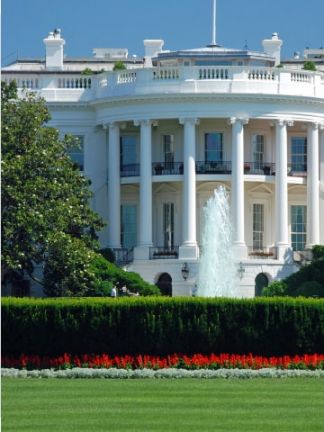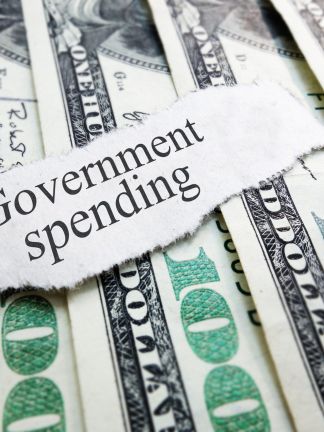Chipotle Increases Prices in San Francisco to Match Increase in the City’s Minimum Wage

Published in Liberator Online - 5 mins - Jul 16
Chipotle Increases Prices in San Francisco to Match Increase in the City’s Minimum Wage
This article was featured in our weekly newsletter, the Liberator Online. To receive it in your inbox, sign up here. If you live or work in San Francisco, the delicious burritos you buy at your local Chipotle are going to be a little more expensive, and you can thank the city’s new minimum wage law, which took effect on May 1. American Enterprise Institute economist Mark Perry made note of a report from William Blair, an investment banking firm, which noticed the price increase and surmised its cause. “San Francisco…saw across-the-board price increases averaging over 10%, including 10% increases on chicken, carnitas (pork), sofritas (tofu), and vegetarian entrees along with a 14% increase on steak and barbacoa,” the report said. “We believe the outsized San Francisco price hike was likely because of increased minimum wages.”
In November, voters in San Francisco overwhelmingly passed a referendum mandating a gradual increase in the city’s minimum wage from $10.74 an hour to $11.05 in January and $12.25 in May. By 2018, San Francisco’s minimum wage will be set at $15.
Employers, particularly smaller ones, in San Francisco will undoubtedly face huge headaches as they try to find ways to pay for the new big government mandate. Some will be simple price increases, while others may not be so lucky.
“[T]he minimum wage is not really a political problem, it’s a math problem,” Perry explains. “And the 10-14% price increases at Chipotles in San Francisco are just the new math problem now facing the restaurant chain’s customers, who’ll now be paying about $1 extra for each burrito bowl.”
San Francisco is following in the footsteps of Seattle, which, in May 2014, enacted a similar gradual minimum wage increase. On April 1, employers in Seattle had to pay $11 an hour. Additional increases will be phased in over time, though when will depend on the size of the employer.
Restaurants in Seattle are struggling to keep up with the wage increase. They’re reducing staff hours to cut payroll costs, opening later or closing earlier, and/or increasing menu prices to make up the forced added overhead cost. One pizzeria owner, however, was forced to close because of the additional costs the minimum wage increase brought her business.
“I’ve let one person go since April 1, I’ve cut hours since April 1, I’ve taken them myself because I don’t pay myself,” said Ritu Shah Burnham, owner of Z Pizza. “I’ve also raised my prices a little bit, there’s no other way to do it.”
Burnham is concerned about job prospects for her employees. “I have no idea where they’re going to find jobs,” she said, “because if I’m cutting hours, I imagine everyone is across the board.”
When he was less interested in scoring political points and more interested in the effects of economic policy, Paul Krugman, in 1998, chided two advocates of a higher minimum wage – – economists David Card and Alan Krueger, the latter of whom would go onto served as President Barack Obama’s Chairman of the Council of Economic Advisers.
“Clearly these advocates very much want to believe that the price of labor–unlike that of gasoline, or Manhattan apartments–can be set based on considerations of justice, not supply and demand, without unpleasant side effects,” Krugman wrote. “This will to believe is obvious in this book: The authors not only take the Card-Krueger results as gospel, but advance a number of other arguments that just do not hold up under examination.”
“For example, the authors argue at length that because only a fraction of the work force in the firms affected by living wage proposals will be affected, total costs will be increased by only 1 or 2 percent–and that as a result, not only will there be no significant reduction in employment, but the extra cost will be absorbed out of profits rather than passed on in higher prices,” he continued. “This latter claim is wishful thinking of the first order: Since when do we think that cost increases are not passed on to customers if they are small enough?”
Krugman seemingly laughed off the assertion that workers wouldn’t suffer, calling it “a non sequitur at best.” They will, according to more recent analysis of the effects of a minimum wage increases.
“Imagine that a new local law required supermarkets to sell milk at, say, 25 cents a gallon,” Krugman added. “The loss in revenue would be only a small fraction of each supermarket’s total sales – but do you really think that milk would be just as available as before?”
The full economic consequences of San Francisco’s minimum wage increase may not be fully understood for some time, and Chipotle’s price increase may be a blip on the radar. But when all is said in done, workers in the city may have a tough time finding employment because of a new hurdle in their way, and consumers will be shelling out a lot of money than they would otherwise be spending for more than just burritos.
“San Francisco…saw across-the-board price increases averaging over 10%, including 10% increases on chicken, carnitas (pork), sofritas (tofu), and vegetarian entrees along with a 14% increase on steak and barbacoa,” the report said. “We believe the outsized San Francisco price hike was likely because of increased minimum wages.”
In November, voters in San Francisco overwhelmingly passed a referendum mandating a gradual increase in the city’s minimum wage from $10.74 an hour to $11.05 in January and $12.25 in May. By 2018, San Francisco’s minimum wage will be set at $15.
Employers, particularly smaller ones, in San Francisco will undoubtedly face huge headaches as they try to find ways to pay for the new big government mandate. Some will be simple price increases, while others may not be so lucky.
“[T]he minimum wage is not really a political problem, it’s a math problem,” Perry explains. “And the 10-14% price increases at Chipotles in San Francisco are just the new math problem now facing the restaurant chain’s customers, who’ll now be paying about $1 extra for each burrito bowl.”
San Francisco is following in the footsteps of Seattle, which, in May 2014, enacted a similar gradual minimum wage increase. On April 1, employers in Seattle had to pay $11 an hour. Additional increases will be phased in over time, though when will depend on the size of the employer.
Restaurants in Seattle are struggling to keep up with the wage increase. They’re reducing staff hours to cut payroll costs, opening later or closing earlier, and/or increasing menu prices to make up the forced added overhead cost. One pizzeria owner, however, was forced to close because of the additional costs the minimum wage increase brought her business.
“I’ve let one person go since April 1, I’ve cut hours since April 1, I’ve taken them myself because I don’t pay myself,” said Ritu Shah Burnham, owner of Z Pizza. “I’ve also raised my prices a little bit, there’s no other way to do it.”
Burnham is concerned about job prospects for her employees. “I have no idea where they’re going to find jobs,” she said, “because if I’m cutting hours, I imagine everyone is across the board.”
When he was less interested in scoring political points and more interested in the effects of economic policy, Paul Krugman, in 1998, chided two advocates of a higher minimum wage – – economists David Card and Alan Krueger, the latter of whom would go onto served as President Barack Obama’s Chairman of the Council of Economic Advisers.
“Clearly these advocates very much want to believe that the price of labor–unlike that of gasoline, or Manhattan apartments–can be set based on considerations of justice, not supply and demand, without unpleasant side effects,” Krugman wrote. “This will to believe is obvious in this book: The authors not only take the Card-Krueger results as gospel, but advance a number of other arguments that just do not hold up under examination.”
“For example, the authors argue at length that because only a fraction of the work force in the firms affected by living wage proposals will be affected, total costs will be increased by only 1 or 2 percent–and that as a result, not only will there be no significant reduction in employment, but the extra cost will be absorbed out of profits rather than passed on in higher prices,” he continued. “This latter claim is wishful thinking of the first order: Since when do we think that cost increases are not passed on to customers if they are small enough?”
Krugman seemingly laughed off the assertion that workers wouldn’t suffer, calling it “a non sequitur at best.” They will, according to more recent analysis of the effects of a minimum wage increases.
“Imagine that a new local law required supermarkets to sell milk at, say, 25 cents a gallon,” Krugman added. “The loss in revenue would be only a small fraction of each supermarket’s total sales – but do you really think that milk would be just as available as before?”
The full economic consequences of San Francisco’s minimum wage increase may not be fully understood for some time, and Chipotle’s price increase may be a blip on the radar. But when all is said in done, workers in the city may have a tough time finding employment because of a new hurdle in their way, and consumers will be shelling out a lot of money than they would otherwise be spending for more than just burritos.

Jackson
Author
Advocates for Self-Government is nonpartisan and nonprofit. We exist to help you determine your political views and to promote a free, prosperous, and self-governing society.
What do you think?
Did you find this article persuasive?
Unpersuasive
Neutral
Very Persuasive
Subscribe & Start Learning
What’s your political type? Find out right now by taking The World’s Smallest Political Quiz.

























